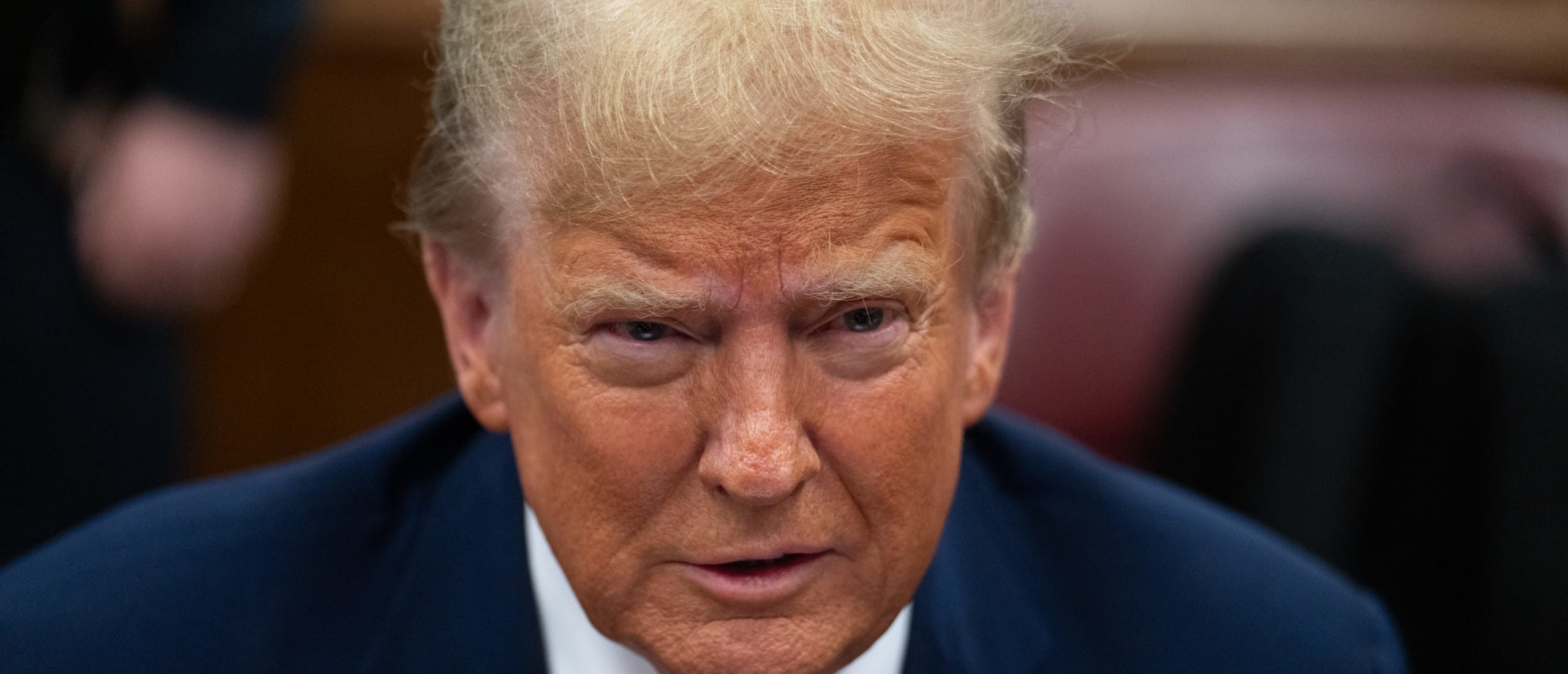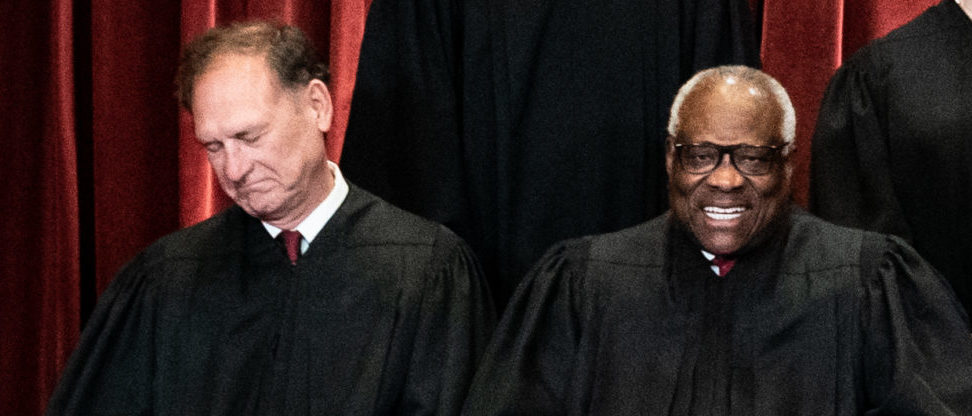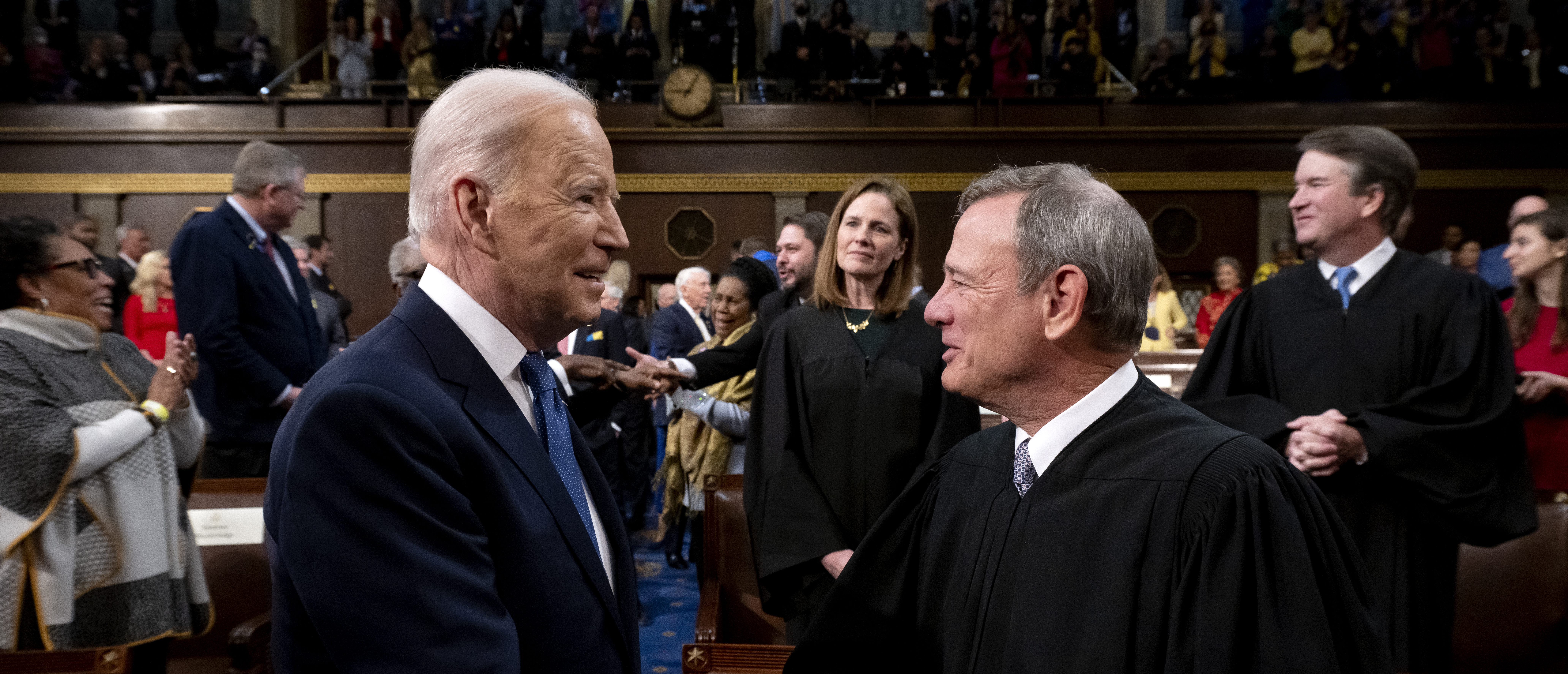Chief Justice John Roberts pressed an attorney representing the Department of Justice Thursday over an argument about presidential immunity during a case centered around former President Donald Trump.
The Supreme Court heard oral arguments in an appeal of a Feb. 6 ruling from a three-judge panel of the United States Court of Appeals for the District of Columbia Circuit that rejected Trump’s claims of presidential immunity in the case stemming from an indictment special counsel Jack Smith secured against him over the former president’s effort to contest the results of the 2020 election. Roberts took aim at the lower court’s opinion while questioning attorney Michael Dreeben, asking if the lower court and DOJ were arguing that Trump lacked immunity by virtue of the fact he had been indicted. (RELATED: Fox News Legal Analyst Says ‘Real Flaws’ In Appeals Court Ruling Put ‘Separation Of Powers’ At Risk)
LISTEN:
“They said that there is no reason to worry because the prosecutor will act in good faith and there is no reason to worry because a grand jury will have returned the indictment,” Roberts said. “Now, you know how easy it is in many cases for a prosecutor to get a grand jury to bring an indictment and reliance on the good faith of the prosecutor may not be enough in some cases, I‘m not suggesting here, so if it’s tautological, if those are the only protections the court gave that is no longer your position, you are not defending that position, why shouldn‘t we send it back to the court of appeals or issue an opinion making clear that that’s not the law?”

NEW YORK, NEW YORK – APRIL 25: Former US President Donald Trump attends his criminal trial for allegedly covering up hush money payments at Manhattan Criminal Court on April 25, 2024 in New York City.(Photo by Jeenah Moon-Pool/Getty Images)
“Well, I am defending the court of appeals’ judgment and I do think there are layered safeguards the court can take into account that will ameliorate concerns about unduly chilling presidential conduct,” Dreeben responded. “That concerns us. We are not endorsing a regime that we think would expose former presidents to criminal prosecutions in bad faith, for political animus, without adequate evidence. A politically driven prosecution would violate the Constitution… It’s is not something within the arsenal of prosecutors to do.”
…Roberts just laid low the appellate decision and Dreeben struggled in defense of it. Roberts responded that, if the Special Counsel does not subscribe to the sweeping decision, why shouldn’t the court send it back?
— Jonathan Turley (@JonathanTurley) April 25, 2024
Trump’s attorneys accused special counsel Jack Smith of having “a political motive” to try the case before the 2024 presidential election in a reply brief filed Feb. 15. The Supreme Court previously denied Smith’s request to provide expedited review of an appeal of a December ruling by United States District Judge Tanya Chutkan of the District of Columbia that rejected a motion by Trump’s attorneys to dismiss the charge on grounds of presidential immunity.

WASHINGTON, DC – APRIL 23: Members of the Supreme Court pose for a group photo at the Supreme Court in Washington, DC on April 23, 2021. (Photo by Erin Schaff-Pool/Getty Images)
The three-judge appeals court panel unanimously rejected Trump’s claim in a Feb. 6 ruling. “Former President Trump lacked any lawful discretionary authority to defy federal criminal law and he is answerable in court for his conduct,” the ruling said.

WASHINGTON, DC – MARCH 01: U.S. President Joe Biden shakes hands with Supreme Court Chief Justice John Roberts (Photo by Saul Loeb – Pool/Getty Images)
“Prosecutors take an oath, the attorney general takes an oath. I don‘t want to overstate your honor‘s concern with potentially relying solely on good faith, but that is an ingredient and then the courts stand ready to adjudicate motions based on selective prosecution, political animus,” Dreeben told. “This court relied on those very protections in a case just two years ago.”
All content created by the Daily Caller News Foundation, an independent and nonpartisan newswire service, is available without charge to any legitimate news publisher that can provide a large audience. All republished articles must include our logo, our reporter’s byline and their DCNF affiliation. For any questions about our guidelines or partnering with us, please contact licensing@dailycallernewsfoundation.org.


